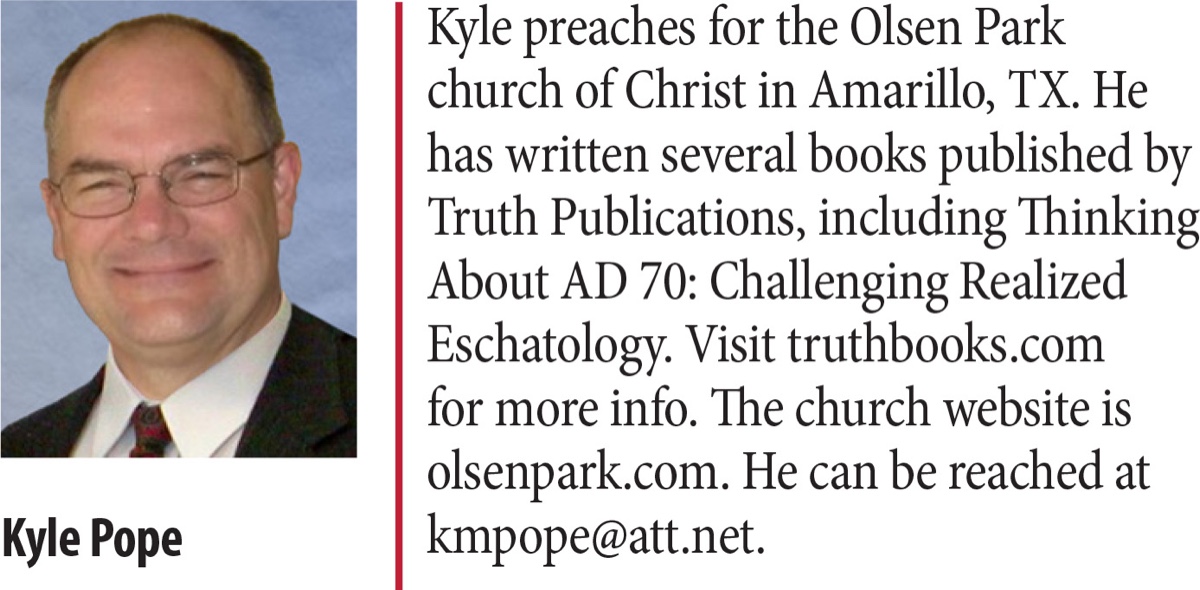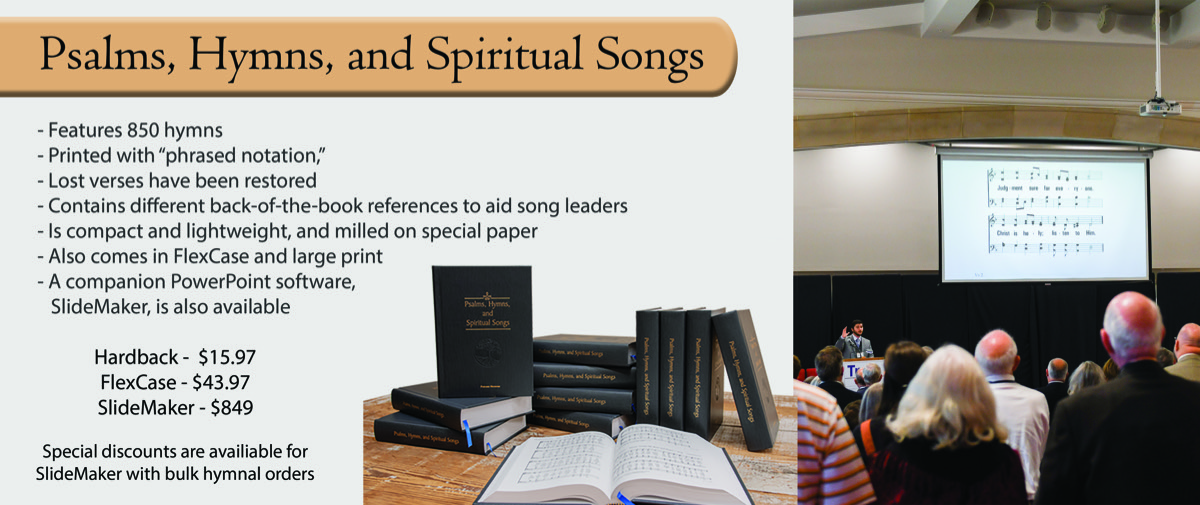By Kyle Pope
Synopsis: How does God define right and wrong? How does pursuing God’s standard benefit a nation? Proverbs 14:34 teaches some general truths that every Christian should recognize.
The Bible sometimes reveals principles of general truth that do not apply in every instance. Proverbs 22:6, for example, teaches, “Train up a child in the way he should go, and when he is old, he will not depart from it” (NKJV). This is not a guarantee that sound teaching in childhood prevents unfaithfulness to the Lord as an adult—as Solomon, who likely penned these words, proves (see Prov. 10:1; 1 Kings 11:4). This is a general truth. In most cases, teaching our children to love and fear the Lord produces adults who remain faithful to Him.
Proverbs 14:34, from which the title of this study is drawn, is a similar example. It reads, “Righteousness exalts a nation, but sin is a reproach to any people.” Does this guarantee that nations who do right will always be victorious in battle, have flourishing economies, and develop happy, healthy, and safe communities? No. Jesus said, “In the world you will have tribulation” (John 16:33), and Paul told Timothy, “all who desire to live godly in Christ Jesus will suffer persecution” (2 Tim. 3:12). This, like Proverbs 22:6, is a general truth. When nations, communities, families, and churches practice what is right and seek to be right before God, it raises them out of the chaos and turmoil of this world into an exalted condition.
What constitutes what is right? Our world is going through a conceptual crisis of definitions. What used to be considered right and true is under attack. What used to be considered wrong and evil is flaunted and marched into the public spotlight without shame. Will such redefinitions of righteousness exalt a nation? No. Long ago, the Lord warned, “Woe to those who call evil good, and good evil; who put darkness for light, and light for darkness; who put bitter for sweet, and sweet for bitter!” (Isa. 5:20).
What, then, determines whether something is right or wrong? Do our individual feelings and opinions set the standard? The criminal thinks that his actions are right. Everyone has different feelings and opinions. Is right and wrong really that subjective?
Some say it is cultural. Do the customs and mores of each culture determine right and wrong? Certainly, different societies and cultures develop different ideas that come to be bound upon the members of their communities by local laws or peer pressure, but history demonstrates how transitory these standards are. What is criminal at one time can become legal and approved only a few years later. Is right and wrong really something that variable?
Thankfully, the Bible offers us a much different gauge to determine righteousness. The psalmist declared of God, “all Your commandments are righteousness” (Ps. 119:172b). God has revealed His will for humanity in the inspired texts of Scripture. Paul explained, through the Holy Spirit, “All Scripture is given by inspiration of God, and is profitable for doctrine, for reproof, for correction, for instruction in righteousness, that the man of God may be complete, thoroughly equipped for every good work” (2 Tim. 3:16-17). If the Scriptures, from Genesis to Revelation, are “profitable” for “instruction in righteousness” equipping us for “every good work,” then the assertion is that they serve as the true and unchanging standard of determining right and wrong.
The message of salvation and life in Christ revealed in the New Testament is often referred to as “the gospel”—a word meaning “good news.” Paul wrote, “For I am not ashamed of the gospel of Christ, for it is the power of God to salvation for everyone who believes, for the Jew first and also for the Greek. For in it, the righteousness of God is revealed from faith to faith; as it is written, ‘The just shall live by faith’” (Rom. 1:16-17). So, while “all Scripture” is inspired of God, the message of Christ contained in the New Testament now reveals “the righteousness of God”—that is, what God now defines as right and how one may now be right before Him. It is this “righteousness” in the lives of individual citizens and this “righteousness” when allowed to shape and influence civil law that will exalt a nation.
What does it mean to exalt something? It depends on what it is. The same Hebrew word translated “exalts” in Proverbs 14:34 is used elsewhere of bringing up children (Isa. 1:2) or the growth of trees (Ezek. 31:4-5). Does righteousness raise up a nation in that sense? Perhaps to a certain extent, but that’s not generally how we think of the exaltation of a nation or of people. We noticed above that righteousness does not eliminate tribulation or persecution, but can actually cause it. So, the exaltation promised in Proverbs 14:34 does not guarantee a life free of trouble and hardship.
Perhaps we can compare this to a statement made by Jesus. In teaching against religious ostentation, He taught, “But he who is greatest among you shall be your servant. And whoever exalts himself will be humbled, and he who humbles himself will be exalted” (Matt. 23:11-12). How will one “be exalted” if he deliberately avoids titles and behavior that makes him stand above others? On the one hand, it may come from honor given by others rather than something taken upon one’s self. Jesus used similar language in a parable about one invited to a wedding who took the lowest seat, but was then honored by being moved to a greater seat (Luke 14:7-11).
Jesus’s words may also address spiritual exaltation. The disciple of Christ, in many cases, must accept self-denial and deprivation in this life in anticipation of an exalted hope in eternal life. The rich young ruler was told, “Go, sell what you have and give to the poor, and you will have treasure in heaven” (Matt. 19:21b). The disciples were promised, “Assuredly, I say to you, there is no one who has left house or brothers or sisters or father or mother or wife or children or lands, for My sake and the gospel’s, who shall not receive a hundredfold now in this time—houses and brothers and sisters and mothers and children and lands, with persecutions—and in the age to come, eternal life” (Mark 10:29-30). This promises spiritual blessings “now in this time” and “in the age to come” despite any sacrifices or persecutions that saints may suffer in service to the Lord.
The exaltation promised to the righteous nation is much the same. Jesus said, “Blessed are those who are persecuted for righteousness’ sake, for theirs is the kingdom of heaven” (Matt. 5:10). Peter wrote, “But even if you should suffer for righteousness’ sake, you are blessed” (1 Pet. 3:14a). In spite of whatever suffering the righteous may face in this life, they are in a spiritually exalted condition (cf. Eph. 2:6-7). As children of God, they are honored, loved, and in fellowship with the King as they await the promise of inheriting the exalted blessing of eternal life with God in heaven.
The exaltation promised in Proverbs 14:34 is contingent upon the practice and attaining of righteousness as defined by God. Man imagines that doing what is “right in his own eyes” (Judg. 17:6; 21:25) leads to happiness, justice, peace, and prosperity. That wasn’t true in the time of the judges, and it isn’t true in our world today. The Holy Spirit warns, “Every way of a man is right in his own eyes, but the LORD weighs the hearts” (Prov. 21:2). Before the throne of God’s judgment, our opinions don’t matter.
Only the righteousness of God, as revealed in the gospel of Jesus Christ, will exalt our nation and our lives. We will never come to a time when our world, as a whole, embraces the gospel: “Because narrow is the gate and difficult is the way which leads to life, and there are few who find it” (Matt. 7:14). In that sense, Proverbs 14:34 is an ideal that can never be absolutely attained. Yet, righteousness as it relates to the status of a nation has never meant that every single individual lives right. It often means that the righteous minority has the courage to act. As more and more men and women today rebelliously do only what is right in their own eyes, may God’s people have the courage to seek and practice the true righteousness of God.


